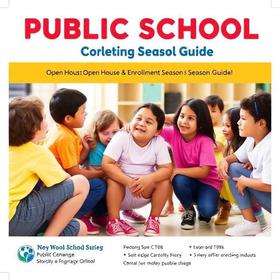Top Rankings
North Plainfield School District ranks among the top 20% of public school district in New Jersey for:
Category
Attribute
Community Size
Largest student body (number of students) (Top 1%)
For the 2025-26 school year, there are 4 public elementary schools serving 1,789 students in North Plainfield School District. This district's average elementary testing ranking is 1/10, which is in the bottom 50% of public elementary schools in New Jersey.
Public Elementary Schools in North Plainfield School District have an average math proficiency score of 17% (versus the New Jersey public elementary school average of 39%), and reading proficiency score of 24% (versus the 49% statewide average).
Minority enrollment is 93% of the student body (majority Hispanic), which is more than the New Jersey public elementary school average of 63% (majority Hispanic).
Overview
This School District
This State (NJ)
# Schools
6 Schools
1,929 Schools
# Students
3,510 Students
886,285 Students
# Teachers
328 Teachers
77,833 Teachers
Student-Teacher Ratio
11:1
11:1
Student By Grade
District Rank
North Plainfield School District, which is ranked within the bottom 50% of all 645 school districts in New Jersey (based off of combined math and reading proficiency testing data) for the 2022-2023 school year.
The school district's graduation rate of 88% has increased from 86% over five school years.
Overall District Rank
#590 out of 648 school districts
(Bottom 50%)
(Bottom 50%)
Math Test Scores (% Proficient)
14%
38%
Reading/Language Arts Test Scores (% Proficient)
28%
49%
Science Test Scores (% Proficient)
10%
23%
Graduation Rate
88%
85%
Students by Ethnicity:
Diversity Score
0.44
0.72
% American Indian
n/a
n/a
% Asian
3%
10%
% Hispanic
73%
34%
% Black
16%
15%
% White
7%
37%
% Hawaiian
n/a
n/a
% Two or more races
1%
4%
All Ethnic Groups
District Revenue and Spending
The revenue/student of $23,491 in this school district is less than the state median of $26,940. The school district revenue/student has declined by 5% over four school years.
The school district's spending/student of $22,538 is less than the state median of $25,837. The school district spending/student has declined by 5% over four school years.
Total Revenue
$83 MM
$36,642 MM
Spending
$79 MM
$35,142 MM
Revenue / Student
$23,491
$26,940
Spending / Student
$22,538
$25,837
Best North Plainfield School District Public Elementary Schools (2025-26)
School
(Math and Reading Proficiency)
(Math and Reading Proficiency)
Location
Quick Facts
Rank: #11.
East End School
(Math: 20-24% | Reading: 30-34%)
Rank:
Rank:
3/
Bottom 50%10
170 Oneida Avenue
Plainfield, NJ 07060
(908) 769-6070
Plainfield, NJ 07060
(908) 769-6070
Gr: PK-4 | 476 students Student-teacher ratio: 11:1 Minority enrollment: 94%
Rank: #22.
West End School
(Math: 18% | Reading: 20-24%)
Rank:
Rank:
2/
Bottom 50%10
447 Greenbrook Road
Plainfield, NJ 07060
(908) 769-6083
Plainfield, NJ 07060
(908) 769-6083
Gr: PK-4 | 537 students Student-teacher ratio: 11:1 Minority enrollment: 92%
Rank: #33.
Somerset School
(Math: 16% | Reading: 24%)
Rank:
Rank:
2/
Bottom 50%10
303 Somerset Street
Plainfield, NJ 07060
(908) 769-6080
Plainfield, NJ 07060
(908) 769-6080
Gr: 5-6 | 499 students Student-teacher ratio: 9:1 Minority enrollment: 91%
Rank: #44.
Stony Brook School
(Math: 10-14% | Reading: 20-24%)
Rank:
Rank:
2/
Bottom 50%10
269 Grove Street
Plainfield, NJ 07060
(908) 769-6063
Plainfield, NJ 07060
(908) 769-6063
Gr: PK-4 | 277 students Student-teacher ratio: 10:1 Minority enrollment: 94%
Recent Articles

Charter Schools vs Public Schools 2025: Key Differences & Trends
Explore updated 2025 insights comparing charter schools vs public schools, enrollment, academic outcomes, funding, and real-world examples for families and educators.

Are Public Schools Ready for the 21st Century? 2025 Update
Explore 2025 insights on whether public schools are ready for the 21st century, covering performance, technology, equity, funding, and future-ready learning.

Public School Open House & Enrollment Season Guide
A parent-focused guide to the public school open house and enrollment season, with expert questions, timelines, and decision tips.





